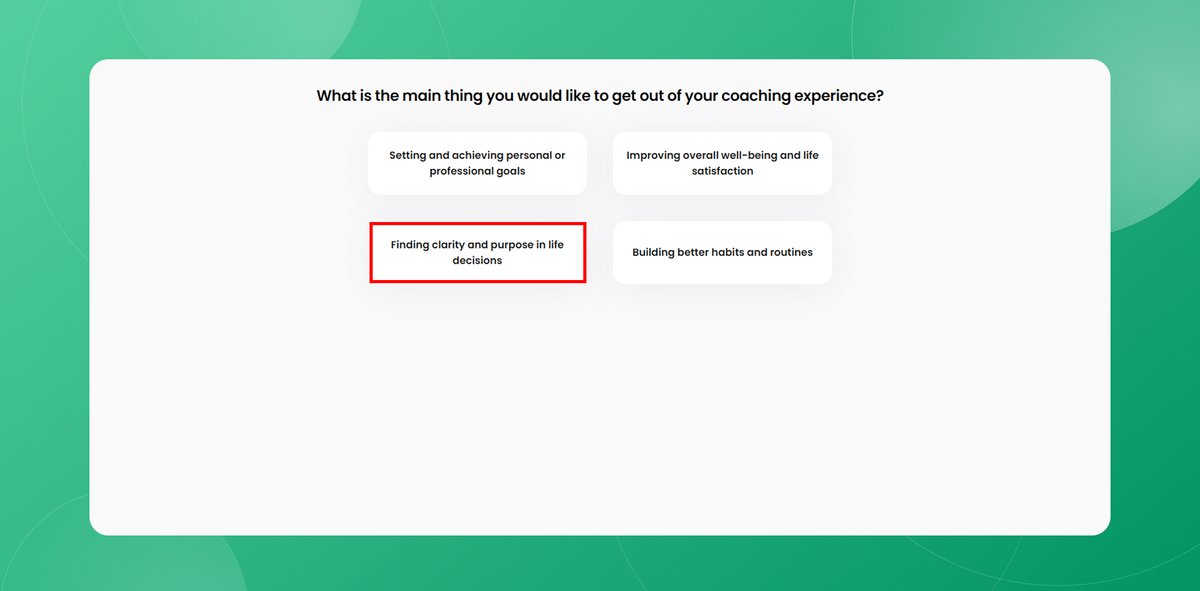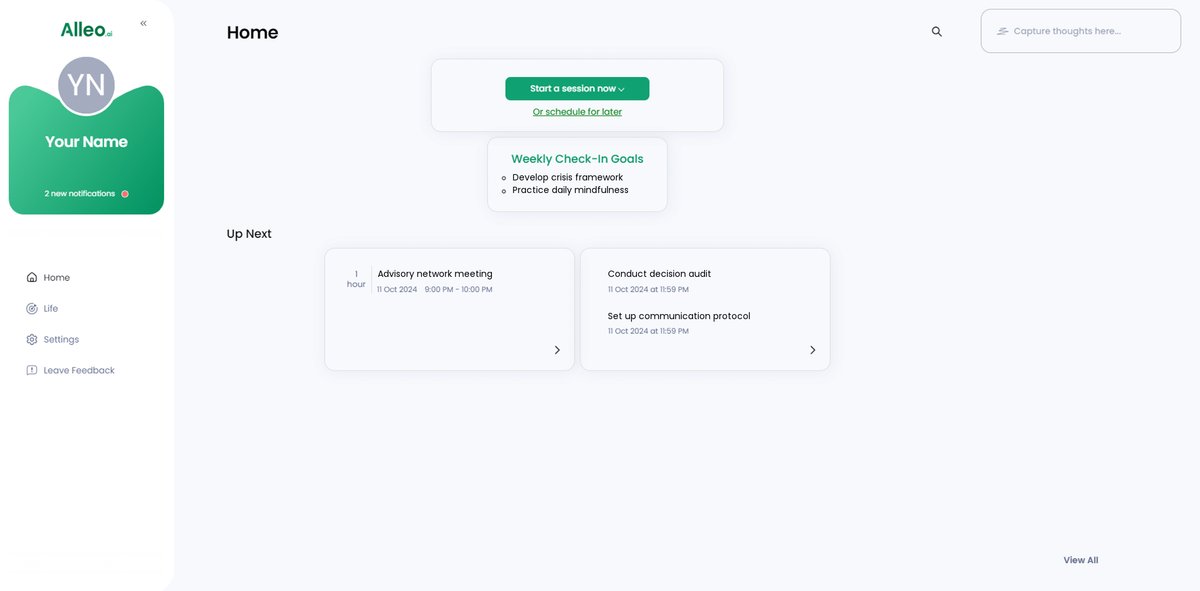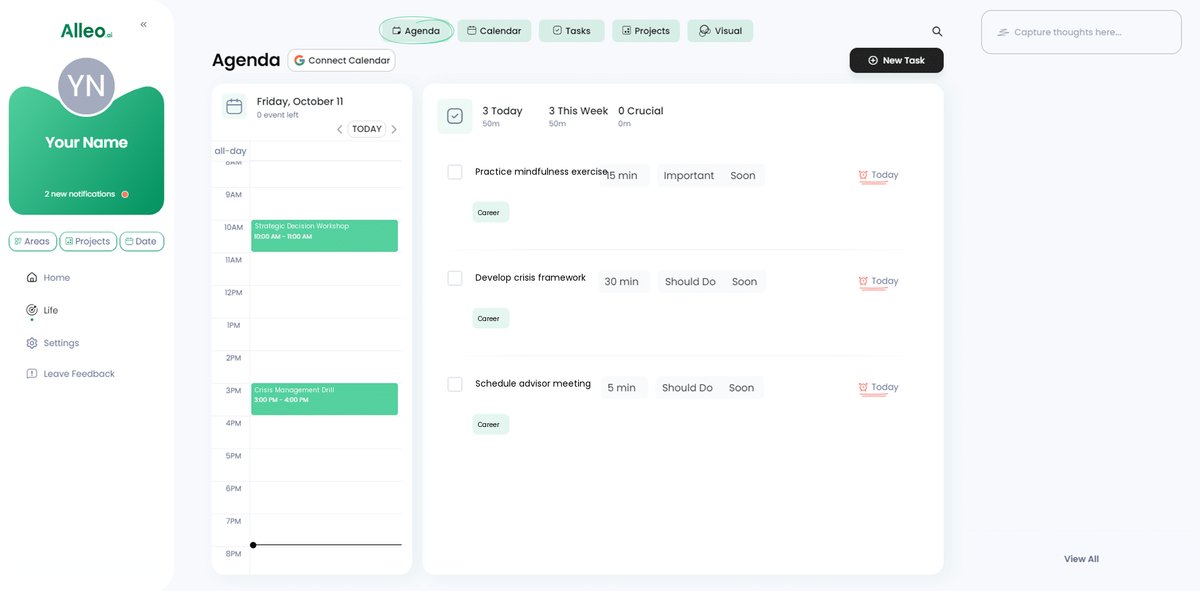Master Strategic Decisions Under Pressure: 7 Game-Changing Techniques for Leaders
Are you struggling with strategic decision-making under pressure?
As a life coach, I’ve helped many professionals navigate these challenges. In my experience working with corporate executives, I often encounter the immense pressure to balance stakeholder needs while navigating complex situations that require rapid decision-making frameworks.
In this article, you’ll discover seven proven strategies to enhance your decision-making skills under pressure. These techniques will provide clarity, confidence, and improved outcomes for high-stakes decision-making and leadership under stress.
Let’s dive into these critical thinking and problem-solving methods for effective leadership in uncertain times.

The High Stakes of Strategic Decision-Making
Strategic decision-making under pressure is inherently complex and risky. Many clients initially struggle with balancing stakeholder needs while navigating uncertain scenarios, a common challenge in crisis management strategies.
The stakes are high, and poor decisions can have severe consequences, highlighting the importance of high-stakes decision-making skills.
In my experience, people often find the pressure overwhelming. A single misstep can lead to significant setbacks or missed opportunities, emphasizing the need for effective leadership in uncertain times.
This is a common issue facing corporate executives. The urgency to act quickly compounds the difficulty, making it hard to think clearly and make informed choices, which is where rapid decision-making frameworks become crucial.
Several clients report feeling paralyzed by the fear of making the wrong decision. This stress can cloud judgment and lead to hasty or poorly thought-out actions, underscoring the importance of pressure management for leaders.
Understanding these challenges is crucial. It’s the first step toward developing effective strategies to manage pressure and make better decisions, leveraging critical thinking in leadership and executive problem-solving methods.

A Roadmap for Strategic Decision-Making Under Pressure
Overcoming this challenge requires a few key steps. Here are the main areas to focus on to make progress in strategic decision-making under pressure:
- Develop a structured crisis decision framework: Conduct a decision audit and create templates for high-stakes decision-making.
- Practice mindfulness for clarity and focus: Implement daily mindfulness practices and training to enhance leadership under stress.
- Build a trusted advisory network: Identify key advisors and hold regular meetings to support effective leadership in uncertain times.
- Implement rapid scenario analysis techniques: Organize workshops and invest in decision support tools for time-sensitive leadership decisions.
- Enhance emotional intelligence for better judgment: Conduct assessments and engage in training to improve critical thinking in leadership.
- Establish clear communication protocols: Develop crisis communication plans and conduct drills as part of crisis management strategies.
- Balance intuition with data-driven analysis: Train on data analysis and hone intuition to improve executive problem-solving methods.
Let’s dive into these strategic decision-making under pressure techniques!
1: Develop a structured crisis decision framework
Developing a structured crisis decision framework is essential for strategic decision-making under pressure, especially for executives facing high-stakes situations.
Actionable Steps:
- Conduct a decision audit to identify critical areas requiring immediate attention, enhancing critical thinking in leadership.
- Prioritize decisions based on impact and urgency, a crucial aspect of effective leadership in uncertain times.
- Develop templates for common crisis scenarios and train team members on using these templates to ensure consistency, improving rapid decision-making frameworks.
Key benefits of a structured crisis decision framework:
- Reduces decision-making time, essential for time-sensitive leadership decisions
- Improves consistency in responses, a vital component of crisis management strategies
- Enhances team coordination, crucial for leadership under stress
Explanation: Implementing these steps can significantly streamline the decision-making process, providing clarity and consistency during crises and improving executive problem-solving methods.
According to a report by the BCI, 52.9% of senior executives now assume an oversight role in crisis management, highlighting the importance of structured frameworks for strategic decision-making under pressure.
This approach ensures that critical decisions are made systematically, reducing errors and enhancing effectiveness in high-stakes decision-making situations.
These initial steps lay the foundation for effective crisis management and prepare us for the next stage, focusing on pressure management for leaders.

2: Practice mindfulness for clarity and focus
In high-pressure situations, practicing mindfulness helps you maintain clarity and focus, essential for strategic decision-making under pressure.
Actionable Steps:
- Implement daily mindfulness practices such as meditation or breathing exercises to enhance critical thinking in leadership. Dedicate at least five minutes each day to these activities.
- Schedule regular mindfulness breaks during high-stakes decision-making periods. Set reminders to take short breaks to reset and recalibrate your focus.
- Attend a workshop on mindfulness for leaders. Look for programs that offer practical techniques specifically designed for executives’ decision-making skills.
Explanation: Practicing mindfulness can significantly enhance your strategic decision-making abilities by reducing stress and improving focus, crucial for effective leadership in uncertain times.
According to research from The Mental Game, mindfulness boosts self-awareness and emotional regulation, key components in effective leadership under stress.
Incorporating these practices into your routine can lead to more thoughtful and strategic decisions, even in time-sensitive leadership situations.
These mindfulness techniques will prepare you to handle stress better and make clearer decisions under pressure, improving your overall crisis management strategies.

3: Build a trusted advisory network
Building a trusted advisory network is crucial for strategic decision-making under pressure and making informed choices in high-stakes situations.
Actionable Steps:
- Identify Key Advisors: Select diverse individuals with complementary expertise in rapid decision-making frameworks. Establish clear roles and responsibilities for each advisor to enhance critical thinking in leadership.
- Regular Advisory Meetings: Schedule regular meetings to discuss ongoing and potential challenges. Foster open communication and trust within the advisory network to improve pressure management for leaders.
Explanation: Having a trusted advisory network provides diverse perspectives and expertise, which is essential for balanced decision-making and developing effective leadership in uncertain times.
According to INSEAD Knowledge, experienced CEOs develop robust coping strategies, including maintaining a network of trusted advisers to support strategic decision-making under pressure.
This approach ensures that you receive well-rounded advice, helping you navigate complex situations more effectively and enhancing your high-stakes decision-making skills.
These steps will help you build a strong support system, setting you up for success in high-stakes situations and improving your executive problem-solving methods.

4: Implement rapid scenario analysis techniques
Implementing rapid scenario analysis techniques is crucial for strategic decision-making under pressure, enabling leaders to make quick, informed decisions in high-stakes situations.
Actionable Steps:
- Organize scenario planning workshops: Gather your team to practice rapid decision-making frameworks using real-world case studies. Simulate high-pressure situations to enhance readiness and develop critical thinking in leadership.
- Invest in decision support tools: Acquire tools that facilitate quick analysis and train your team to use them effectively. These tools provide data-driven insights during critical moments, supporting executive problem-solving methods.
Explanation: These steps matter because they prepare you to handle crises efficiently. Rapid scenario analysis equips you with high-stakes decision-making skills to navigate complex situations swiftly, enhancing your leadership under stress.
According to Watermark Learning, using decision support tools enhances strategic thinking during stressful times. By practicing these techniques, you can improve your decision-making speed and accuracy, crucial for effective leadership in uncertain times.
These techniques will help you stay ahead in high-stakes situations, ensuring better outcomes for your organization and refining your pressure management for leaders skills.

5: Enhance emotional intelligence for better judgment
Enhancing emotional intelligence is crucial for strategic decision-making under pressure and making sound judgments in high-stakes situations.
Actionable Steps:
- Conduct emotional intelligence assessments: Evaluate your strengths and areas for improvement. Use these insights to develop a personalized growth plan for effective leadership in uncertain times.
- Engage in emotional intelligence training: Participate in workshops and one-on-one coaching sessions. Focus on improving skills like empathy and self-regulation, which are essential for critical thinking in leadership.
- Practice reflective journaling: Dedicate time each day to reflect on your emotional responses to various situations. This will help you identify patterns and enhance self-awareness, a key component of executive problem-solving methods.
Key components of emotional intelligence for better strategic decision-making under pressure:
- Self-awareness
- Empathy
- Stress management
Explanation: Enhancing emotional intelligence leads to better judgment and interpersonal skills. It helps you manage stress and make thoughtful decisions, which are crucial for crisis management strategies and rapid decision-making frameworks.
According to INSEAD Knowledge, effective leaders balance emotions and logic to navigate complex scenarios. By improving emotional intelligence, you’ll gain a competitive edge in high-stakes decision-making environments.
These steps will help you develop the emotional resilience needed for effective strategic decision-making under pressure and enhance your pressure management skills as a leader.

6: Establish clear communication protocols
Effective communication is crucial for strategic decision-making under pressure.
Actionable Steps:
- Develop a comprehensive crisis communication plan: Document clear protocols for communicating during crises. Ensure all team members understand their roles in high-stakes decision-making situations.
- Conduct regular communication drills: Schedule drills to test and refine communication protocols for rapid decision-making frameworks. Use feedback to continuously improve leadership under stress.
- Incorporate technology: Implement tools for real-time communication and updates to support time-sensitive leadership decisions. Train your team to use these tools effectively for pressure management.
Explanation: Establishing clear communication protocols ensures everyone is on the same page during high-pressure situations, which is essential for strategic decision-making under pressure.
According to a study by Clemson University, structured communication systems are vital for effective crisis management strategies.
These steps enhance coordination and reduce errors, leading to better decision-making outcomes and improving critical thinking in leadership.
These protocols will streamline your communication process, ensuring clarity and efficiency in critical moments, which is crucial for executive problem-solving methods and effective leadership in uncertain times.

7: Balance intuition with data-driven analysis
Balancing intuition with data-driven analysis is essential for strategic decision-making under pressure. This approach helps leaders make well-rounded choices in high-stakes situations.
Actionable Steps:
- Train on data analysis techniques: Enroll in courses to enhance your understanding of advanced data analysis. Apply these skills to your daily decision-making tasks, improving your executive problem-solving methods.
- Encourage intuitive judgment through experience: Reflect on past decisions to identify patterns and sharpen your intuition. Make time for regular reflection and learning, enhancing your critical thinking in leadership.
- Combine insights: Use data to validate your intuitive judgments. Cross-check your gut feelings with empirical evidence to ensure balanced decisions, a crucial aspect of effective leadership in uncertain times.
Steps to improve intuitive decision-making:
- Practice active listening
- Trust your instincts
- Reflect on past decisions
Explanation: Balancing intuition with data-driven analysis helps you make more informed and confident decisions, especially when facing time-sensitive leadership decisions.
According to LinkedIn Pulse, intuition honed by experience often leads to quicker and more accurate decisions than analysis alone, which is crucial for crisis management strategies.
Incorporating both elements ensures a comprehensive approach to decision-making, essential for pressure management for leaders.
These strategies will enable you to harness both intuition and data, leading to better strategic outcomes and improving your high-stakes decision-making skills.

Partner with Alleo for Strategic Decision-Making Success
We’ve explored the challenges of strategic decision-making under pressure, how solving them can benefit your career, and the steps to achieve it. But did you know you can work directly with Alleo to make this journey easier and faster?
Alleo provides tailored coaching support for strategic decision-making under pressure. Our AI life coach offers comprehensive sessions, just like a human coach, to help you navigate high-stakes decision-making situations and develop effective leadership in uncertain times.
Setting up an account is simple. Create a personalized plan to address your specific challenges, including rapid decision-making frameworks and pressure management for leaders.
Alleo’s coach will follow up on your progress, handle changes, and keep you accountable via text and push notifications, supporting your development of critical thinking in leadership and executive problem-solving methods.
Ready to get started for free? Let me show you how to enhance your strategic decision-making under pressure skills!
Step 1: Log In or Create Your Account
To begin your journey towards better strategic decision-making, log in to your existing Alleo account or create a new one in just a few clicks.

Step 2: Choose Your Focus Area
Select “Finding clarity and purpose in life decisions” to align your coaching journey with the strategic decision-making skills discussed in the article. This focus will help you develop the clarity and confidence needed to make impactful choices under pressure.

Step 3: Select “Career” as Your Focus Area
Choose “Career” as your focus area to address the challenges of strategic decision-making under pressure, aligning with the article’s emphasis on professional growth and leadership skills. This selection will help you develop the critical abilities needed to excel in high-stakes corporate environments and advance your career trajectory.

Step 4: Starting a Coaching Session
To begin your strategic decision-making journey, initiate an intake session with Alleo’s AI coach to establish your personalized plan for navigating high-pressure situations and improving your decision-making skills.

Step 5: Viewing and Managing Goals After the Session
After your strategic decision-making coaching session, check the app’s home page to review and manage the goals you discussed, ensuring you stay on track with implementing the techniques for making better decisions under pressure.

Step 6: Adding Events to Your Calendar or App
Track your progress in solving strategic decision-making challenges by adding key milestones, deadlines, and practice sessions to your calendar or task list within the Alleo app, helping you stay accountable and measure your improvement over time.

Embrace Strategic Decision-Making with Confidence
As we wrap up, remember the complexity of strategic decision-making under pressure is something many executives face. It’s normal to feel overwhelmed in high-stakes decision-making situations.
By using the seven strategies discussed, you can navigate these challenges more effectively and enhance your leadership under stress. Start with small steps to improve your critical thinking in leadership.
Building your skills in crisis management strategies, mindfulness, and scenario analysis will provide clarity for time-sensitive leadership decisions. Enhancing emotional intelligence and communication protocols will improve judgment in uncertain times.
Balancing intuition with data-driven analysis ensures well-rounded decisions. Keep practicing these decision-making techniques for executives.
You don’t have to do it alone. Alleo can be your partner in this journey of developing effective leadership in uncertain times.
Take the first step today to improve your strategic decision-making under pressure. Let Alleo support you in making better strategic decisions and enhancing your rapid decision-making frameworks. Try it for free.